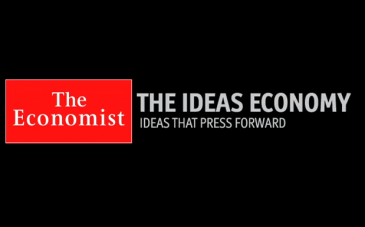Ideas Economy: Human Potential 2012
August 3, 2012
 The Economist’s Ideas Economy: Human Potential event will explore the fundamental issues affecting personal and professional life, including creativity, management, social purpose, and the future of jobs.
The Economist’s Ideas Economy: Human Potential event will explore the fundamental issues affecting personal and professional life, including creativity, management, social purpose, and the future of jobs.
Disruptive innovation and technological change is reshaping the world of work. This includes the spread of flexible working, the feminsation of the workforce, and growing life expectancies. A global labour market is allowing companies to access talent from anywhere. Frugal engineers are slashing costs. Entrepreneurship is flourishing. Social media and innovations in education are raising intellectual standards. The emerging world is disrupting traditional business models. Innovations in manufacturing have launched us into a third industrial revolution.
The price of improved productivity is perpetual change and for most companies, one of the central problems will be how to innovate quickly enough. For a growing number of ordinary people, though, the great problem will be coping with the social and psychological impact of all this innovation. The combination of globalisation and technological innovation means that work has become omnipresent and all-consuming. Striking a sustainable balance between the imperatives of creative destruction, on the one hand, and the demands for a manageable life, on the other, will be one of the great themes of the coming decades.
Will we be able to harness creative destruction to improve the quality of our everyday lives? Or will it tear apart our societies and degrade the quality of life? Chaired by The Economist’s US business editor and New York bureau chief, Matthew Bishop, and management editor and Schumpeter columnist Adrian Wooldridge, Ideas Economy: Human Potential is designed for senior-level decision makers, managers who value the role of human capital to advance economic growth, and Economist readers interested in the transformative power of creative destruction and disruptive innovation. Yes, the world is in the midst of dramatic flux. But The Economist believes people will win more than they will lose from the current social and economic changes.